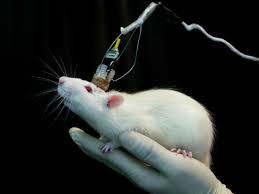Action science is an approach to generating knowledge for practice by engaging practitioners in that process through reflection on their own behavioral worlds of practice . Technical rationality for professional practice is concerned with “knowing that.*’ whereas action science is oriented to “knowing how” in practice. Although knowing how in practice contributes to the creation of knowledge that is not available from traditional research, what practitioners actually design in their practice may be limiting, routinized. and self-sealing. Hence, action science addresses generation of knowledge through reflection that fulfills the functions of discovery.
Putnam (1992) suggests that action science is based on three philosophical premises: (a) human practice involves meaning making, intentionality in action, and normativity from the perspective of human agency: (b) human practice goes on in an interdependent milieu of behavioral norms and institutional politics: and (c) the epistemology of practice calls for the engagement of practitioners in generating knowledge.
Action science thus is a method and philosophy for improving practice and generating knowledge. Argyris( 1987) suggests further that action science is an interventionist approach in which three prerequisites must he established for the research to ensue:
(a) a creation of normative models of rare universes that are free of defensive routines,
(b) a theory of intervention that can move practitioners and organizations from the present to a new desirable universe, and
(c) a theory of instruction that can be used to teach new skills and create new culture.
Facts You Must Know About Action Science Definition
Action science holds that actions in professional practice arc based on practitioners’ theories of action. Theories of action are learned and organized as repertoires of concepts, schemata, and propositions and arc the basis on which practitioners behavioral worlds arc created in specific situations of practice. Argyris, Putnam, and Smith (1985) identify espoused theories and theories-in-use as two types of theories of action. Espoused theories of action are the rationale expressed by practitioners as guiding their actions in a situation of practice, whereas theories-in-use refers to theories that are actually used in practice. Theories-in-use are only infer-able from the actions themselves, and practitioners usually are not aware of or not able to articulate their theories-in-use except through careful reflection and self-dialogue.
Nursing practice is a human-to-human service that occurs in the context of health care. Nurses practice within on-line conditions that are complex not only with respect to clients’ problems but also in terms of organizational elements of the health care environment. Nursing practice is not based simply on linear translations of relevant theoretical knowledge that governs the situation of practice but has to be derived and designed from the nurse’s knowledge of and responses to the competing and complex demands of the situation (Kim, 1994). In addition, as the action scientists suggest, nursing practice in general, as well as particular nursing actions, may be entrenched with rationalization or frozen.
